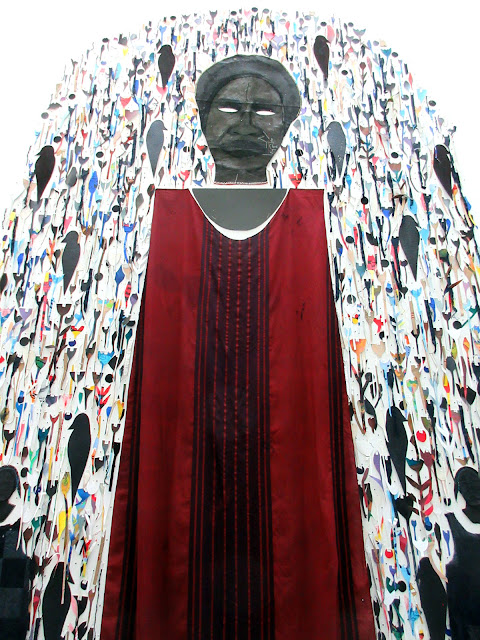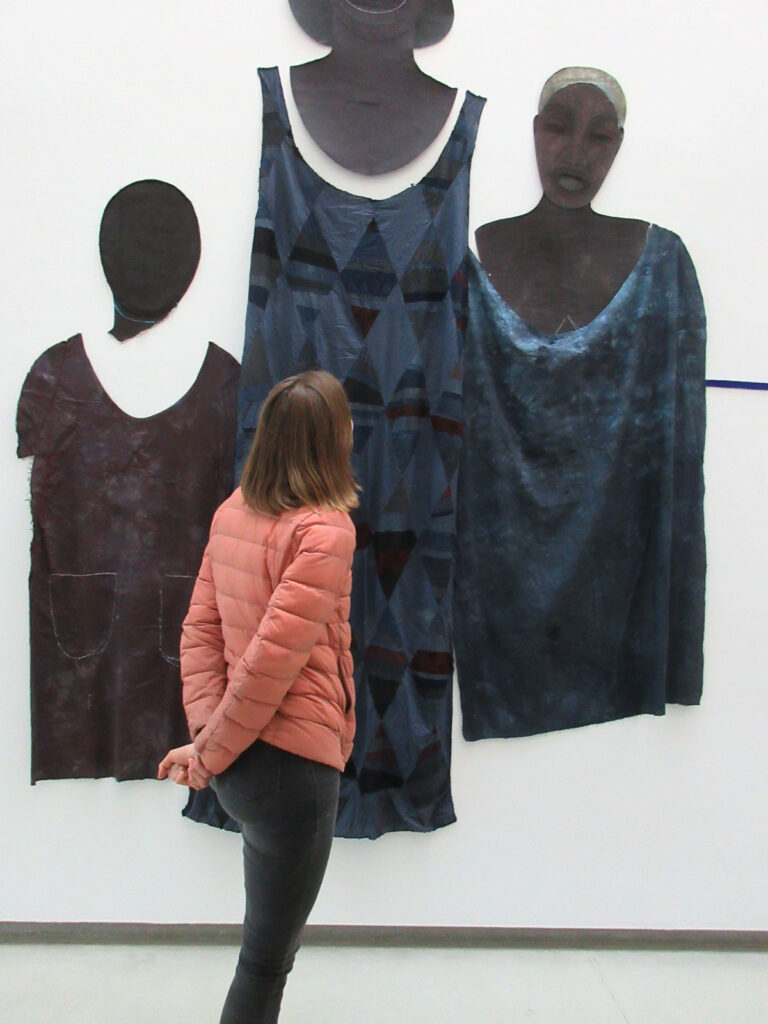Alicia Henry, a visionary artist whose work delved into themes of identity, visibility, and race, passed away on October 16 at the age of 58 after a two-year battle with cancer.
Henry, who was renowned for her quiet yet powerful sculptural pieces, left a lasting legacy through her deeply reflective art. Her Dallas-based gallery, Liliana Bloch, confirmed her passing.
Henry’s art, often composed of hand-painted wood, leather, linen, and cotton, explored how race, gender, and culture intersect to shape both individual and collective identities.
Drawing inspiration from West African masks and personal memories, her work featured faceless figures, abstract body parts, and interactions between figures that invited viewers to contemplate the complexity and fluidity of identity.
As Henry herself once said:
“A common recurring image in my work is the human figure—the figure in isolation and the figure interacting with others. I am interested in exploring how gender (females particularly), race, cultural and societal differences affect the individual and groups.”

Henry’s pieces were understated in their execution, yet their themes and impact were anything but. Her work evoked a deep sense of introspection and asked audiences to consider what it means to be seen—or unseen.
The acclaimed artist María Magdalena Campos-Pons, who featured Henry’s art in the 2023 Tennessee Triennial, praised the “modesty of gesture” in her work.
“The hidden power of her work resides in that modesty of gesture that, by consistency and commitment, becomes heroic,” Campos-Pons told Nashville Scene in 2022.

Born in 1966 in Illinois, Henry earned her BFA from the Art Institute of Chicago and later completed her MFA at Yale University School of Art.
After Yale, she served in the Peace Corps in Ghana and taught at the Pine Ridge Reservation in South Dakota before establishing a home in Nashville.
There, she spent over two decades as a professor at Fisk University, where she shaped countless students and became a beloved figure in the arts community.
Throughout her career, Henry’s work garnered recognition and acclaim. She received fellowships from the Guggenheim Foundation, the Ford Foundation, and the Joan Mitchell Foundation.
Her art was exhibited across North America and internationally, including solo shows at the Power Plant in Toronto and the Art Gallery of Nova Scotia. In 2021, her work gained further recognition in Europe after she joined London’s Tiwani Contemporary gallery.
Henry’s passing is a significant loss to the art world, but her contributions to the conversation about race, identity, and visibility will continue to resonate.
